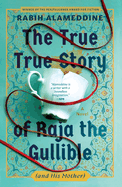Martin Cruz Smith, best known for the Arkady Renko series that started with Gorky Park, died on Saturday at age 82. As noted by his publisher Simon & Schuster, the New York Times called Smith "the master of the international thriller," the New Yorker wrote that he was "brilliant," and the Washington Post called the series "a work of art."
Smith's children--including Luisa Smith, editor-in-chief of Mysterious Press and Scarlet and former head buyer at Book Passage in Corte Madera and San Francisco, Calif.--made an announcement about their father's death, writing in part, "Our dad died peacefully late Friday night. We sat next to him, telling him how much we loved him, and in the last moments he let us know he heard us and loved us too. We already knew, in everything he had done in life he had let us know, but after Parkinson's had taken his voice, it felt like both a small miracle and a typical show of his ability to defy the odds that he could find a way to once again show his love.
"The world knew him best through Arkady Renko, the disillusioned Soviet investigator with a moral compass stubborn enough to function even in a blizzard of lies. First introduced in Gorky Park, Renko was not so much a hero as a survivor. Like dad, he mistrusted institutions, prized observation, used humor to expose hypocrisy, and believed that truth, though often buried, still mattered."
Early in his writing career, Smith wrote two westerns under the name Jake Logan; three Nick Carter spy novels; six Inquisitor series novels using the name Simon Quinn, about a spy agent employed by the Vatican; and a science fiction novel, The Indians Won, a Native American speculative novel. Several of his novels featured Roman Grey, a gypsy art dealer in New York City, and one, Canto for a Gypsy, was nominated for an Edgar. Nightwing, a 1977 thriller with a Native American setting, was adapted into a movie directed by Arthur Hiller.
As his children wrote, "Before Gorky Park, there were westerns and pulp thrillers, written under various pseudonyms, a cloak of anonymity that let him hone his craft without the burden of expectation. But once Renko entered the scene, everything changed. Gorky Park was both a commercial and critical success: a crime novel that slipped through the Iron Curtain and returned with secrets. A single book that changed our lives, moving us from New York to California, and allowing him to take greater chances with his writing."
Gorky Park was published in 1981 and was an immediate bestseller, staying on the lists for many months. It won a Gold Dagger from the Crime Writers' Association and was made into a 1983 movie directed by Michael Apted and starring William Hurt and Lee Marvin.
The first three Renko books were set during the Soviet period, and lauded for their portrayal of life in that era from the viewpoint of a police investigator who understands the limitations of his position but nonetheless investigates and follows all leads, regardless of vast political sensitivities. The eight following books loosely followed events in Russia, including the rise of Vladimir Putin and the invasion of Ukraine.
"What followed were a dozen more novels that never bowed to convention," his children added. "His sentences were sparse but musical. He distrusted glamour, preferred questions over answers, and could describe a man's character through a single gesture, the way a cigarette burned, the way a lie paused."
After the publication of Gorky Park, Smith also wrote several novels distinct from the Renko books, including Stallion Gate, Rose, December 6, and The Girl from Venice.
Cruz received the Mystery Writers of America's Grand Master Award, as well as two Hammett Prizes, for Rose and Havana Bay, from the International Association of Crime Writers, North American Branch.
Hotel Ukraine, the 11th and "final Arkady Renko novel," was published last Tuesday by Simon & Schuster, which noted: "For the last three decades, Smith lived with Parkinson's, and he innovatively incorporated the condition into the more recent Renko novels, with his protagonist facing it as courageously as the author himself. As Smith writes of Renko in Hotel Ukraine: 'He could stay at home, do nothing, and surrender as his symptoms got worse... He was defined by who he was and what he could still do. Put that way, it wasn't even a choice.' "
"The same was true of Martin Cruz Smith," Sean Manning, v-p and publisher of S&S and Smith's editor, observed. "He was a writer, and he did it beautifully and valiantly until the very end."
Smith's wife, Emily Smith, called him "a beloved husband, father and grandfather; an adventurer, traveler and researcher; and a man of deep humanity, humor and insight. He felt that he was the luckiest man alive."
His children wrote, "His death leaves a silence, but not a void... [He] will live in our hearts forever."
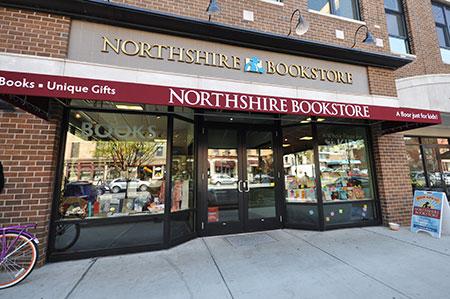 "We are working expeditiously to reopen as soon as possible and thank our incredible customers for their patience and support," COO Scott Austin told the Albany Times Union at the time.
"We are working expeditiously to reopen as soon as possible and thank our incredible customers for their patience and support," COO Scott Austin told the Albany Times Union at the time. 






SHELFAWARENESS.1222.T1.BESTADSWEBINAR.gif)
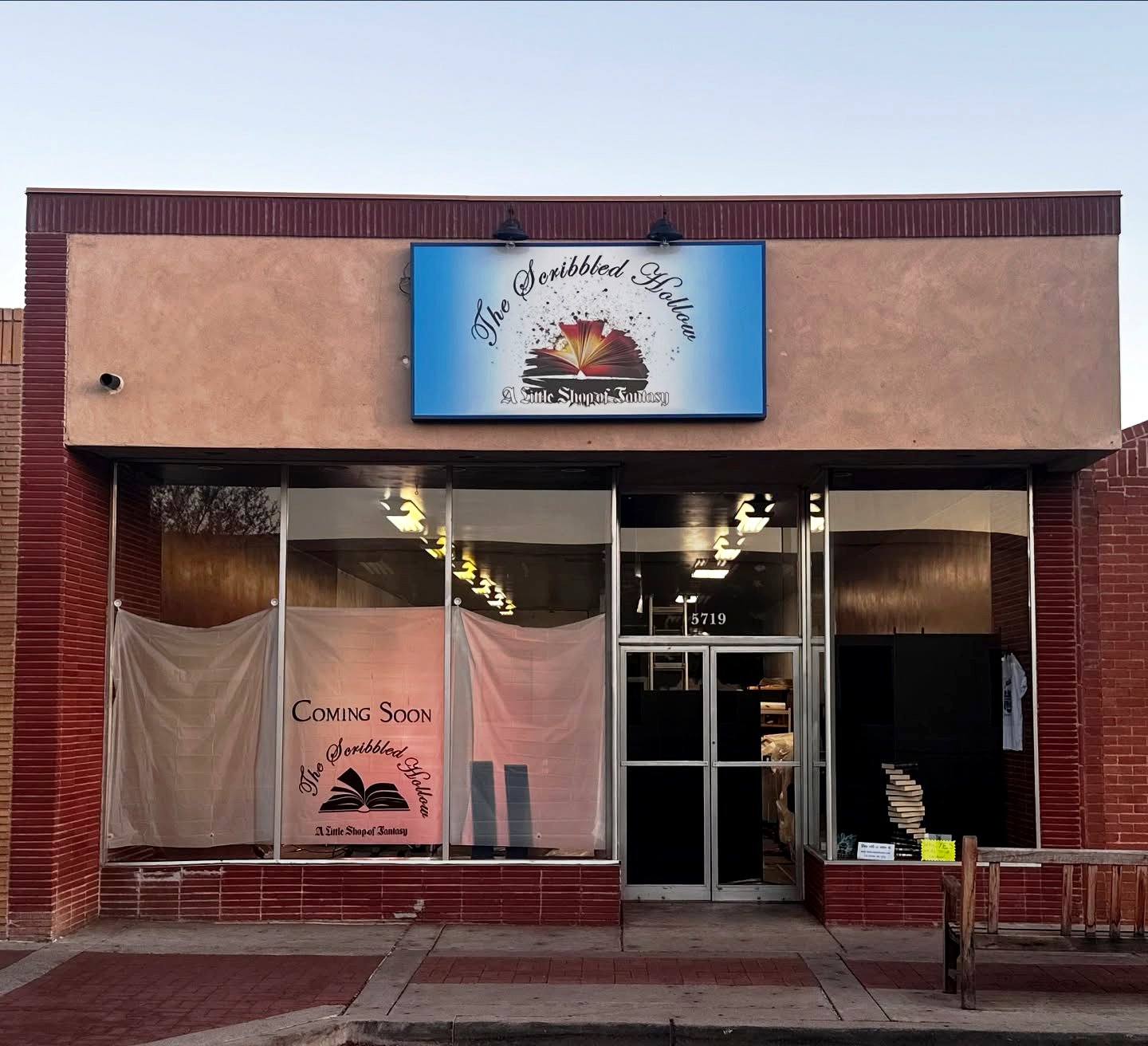 Scribbled Hollow sells books for all ages, with an emphasis on science fiction, fantasy, and fandom. Alongside books, customers can find T-shirts, mugs, and other merchandise, and the store will host author signings, poetry slams, and more.
Scribbled Hollow sells books for all ages, with an emphasis on science fiction, fantasy, and fandom. Alongside books, customers can find T-shirts, mugs, and other merchandise, and the store will host author signings, poetry slams, and more.  The Barnes & Noble University District Bookstore--the partnership between B&N and University Book Store through which B&N will operate the store's general books department--will officially open in Seattle, Wash., this week. Author Matt Dinniman (Dungeon Crawler Carl) will be on hand for a ribbon cutting and book signing.
The Barnes & Noble University District Bookstore--the partnership between B&N and University Book Store through which B&N will operate the store's general books department--will officially open in Seattle, Wash., this week. Author Matt Dinniman (Dungeon Crawler Carl) will be on hand for a ribbon cutting and book signing. 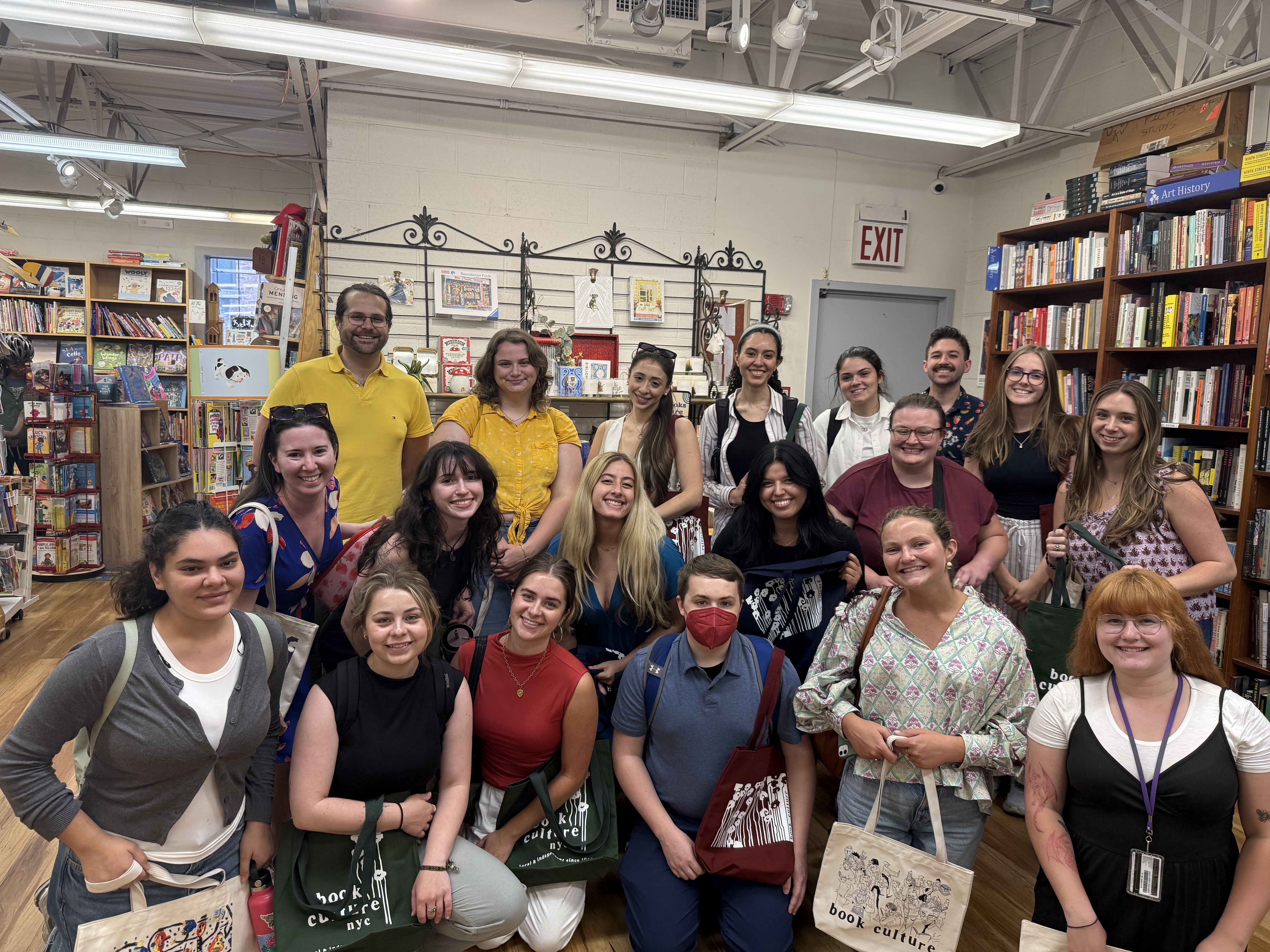
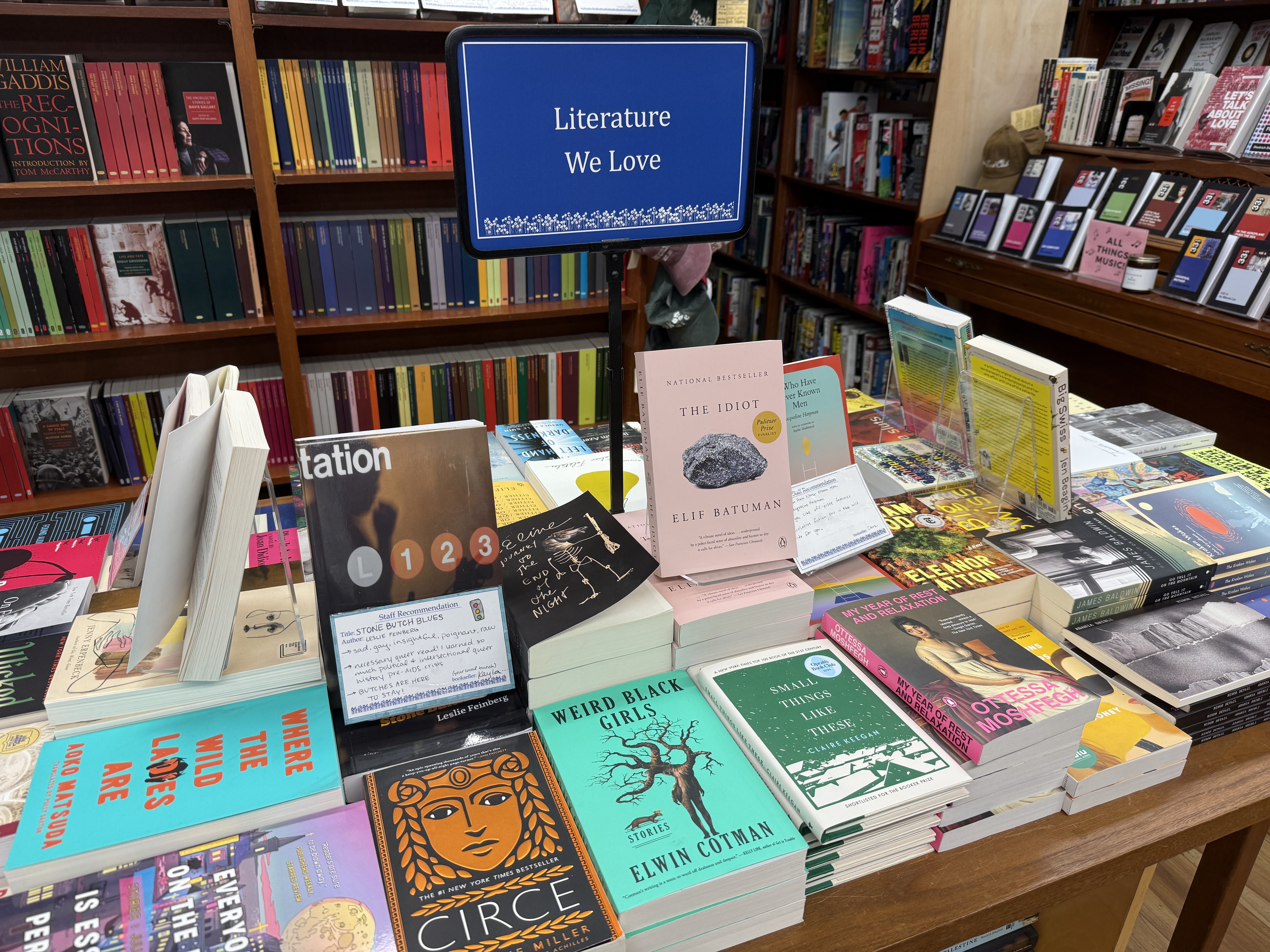 Is working at a bookstore as dreamy as we like to think? Cody explained that it's not like Audrey Hepburn at the start of Funny Face, where she's staring wistfully out the window most of the day. It's a dynamic environment with a constant flurry of activity. Still, there's no lack of movie magic at Book Culture, for example, when a Hollywood star turns up in the second row at a community poetry reading. And the true magic, of course, is in the everyday interactions with fellow readers, helping them find the perfect next read. Current sought-after titles include The Emperor of Gladness by Ocean Vuong, Problematic Summer Romance by Ali Hazelwood, Spent by Alison Bechdel, and I Who Have Never Known Men by Jacqueline Harpman.
Is working at a bookstore as dreamy as we like to think? Cody explained that it's not like Audrey Hepburn at the start of Funny Face, where she's staring wistfully out the window most of the day. It's a dynamic environment with a constant flurry of activity. Still, there's no lack of movie magic at Book Culture, for example, when a Hollywood star turns up in the second row at a community poetry reading. And the true magic, of course, is in the everyday interactions with fellow readers, helping them find the perfect next read. Current sought-after titles include The Emperor of Gladness by Ocean Vuong, Problematic Summer Romance by Ali Hazelwood, Spent by Alison Bechdel, and I Who Have Never Known Men by Jacqueline Harpman.
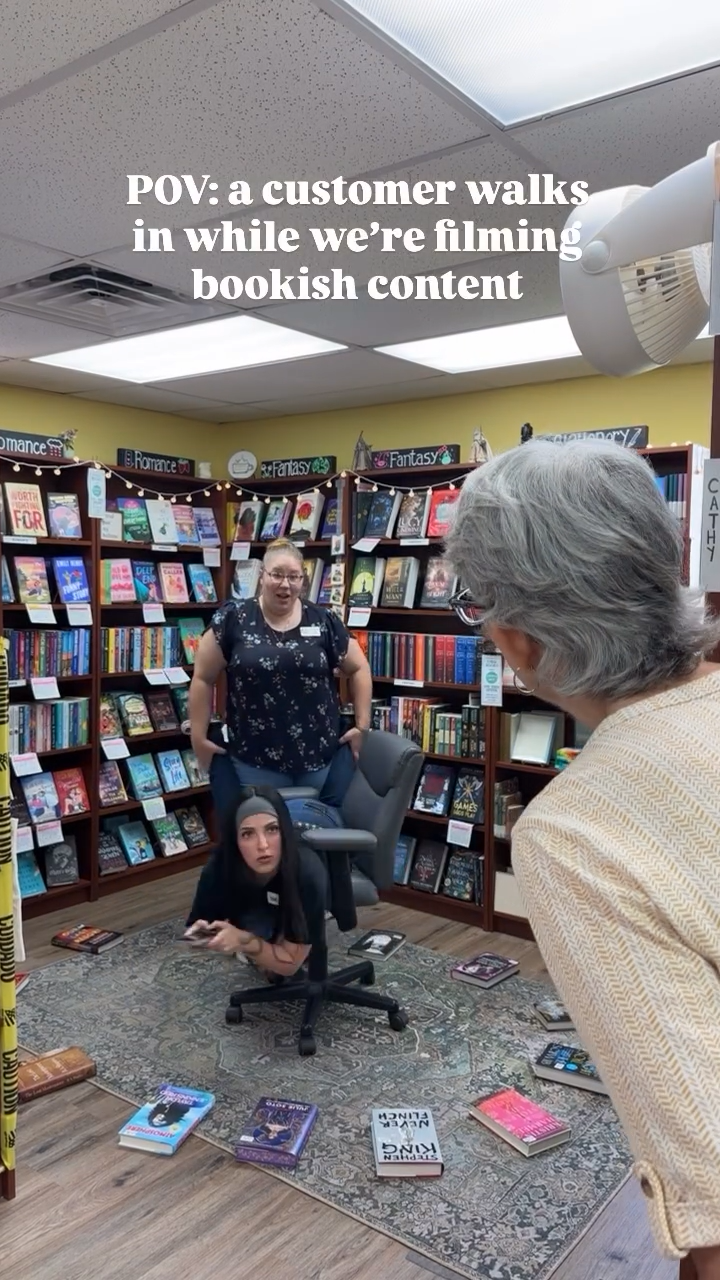
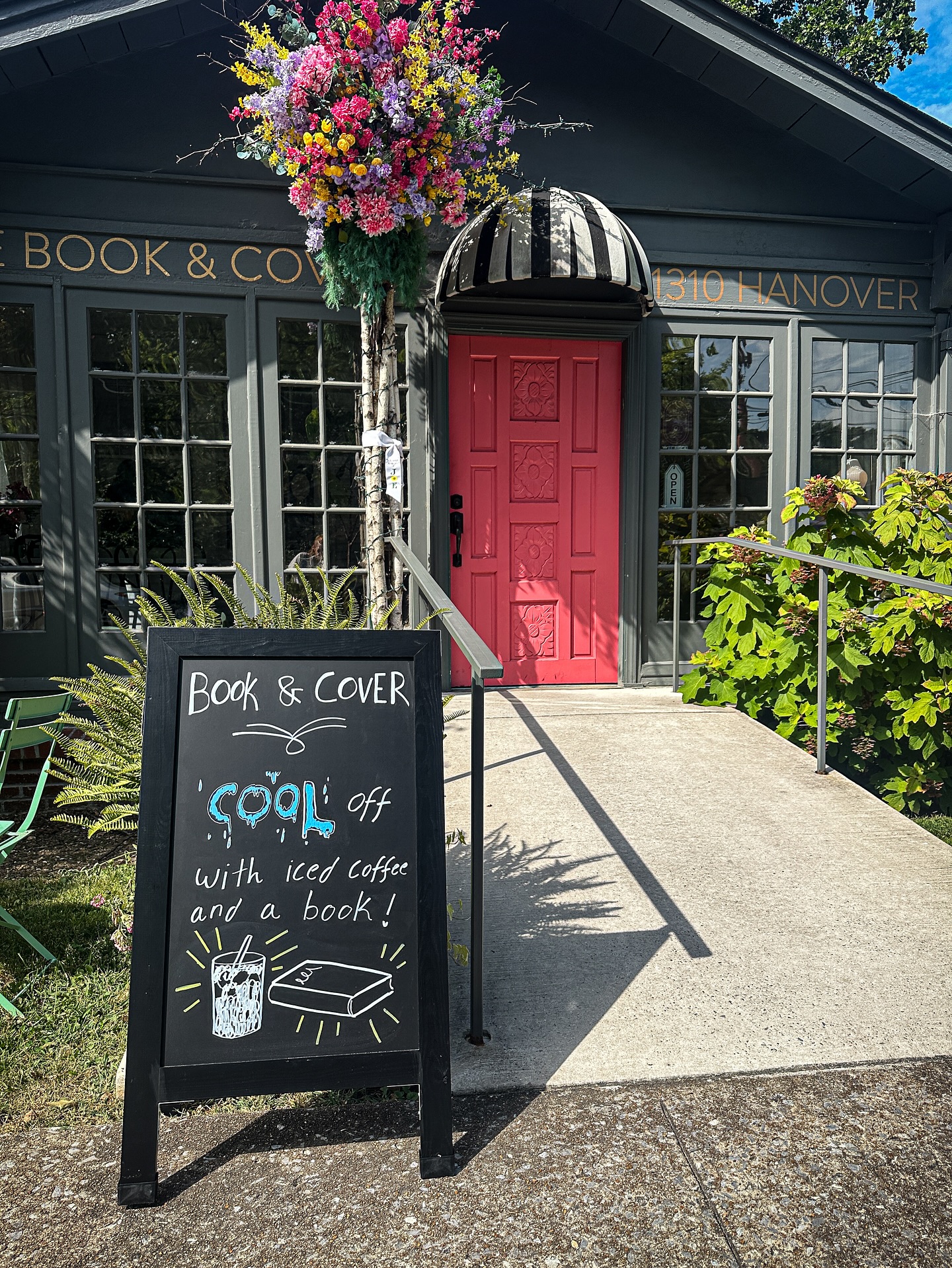 "
"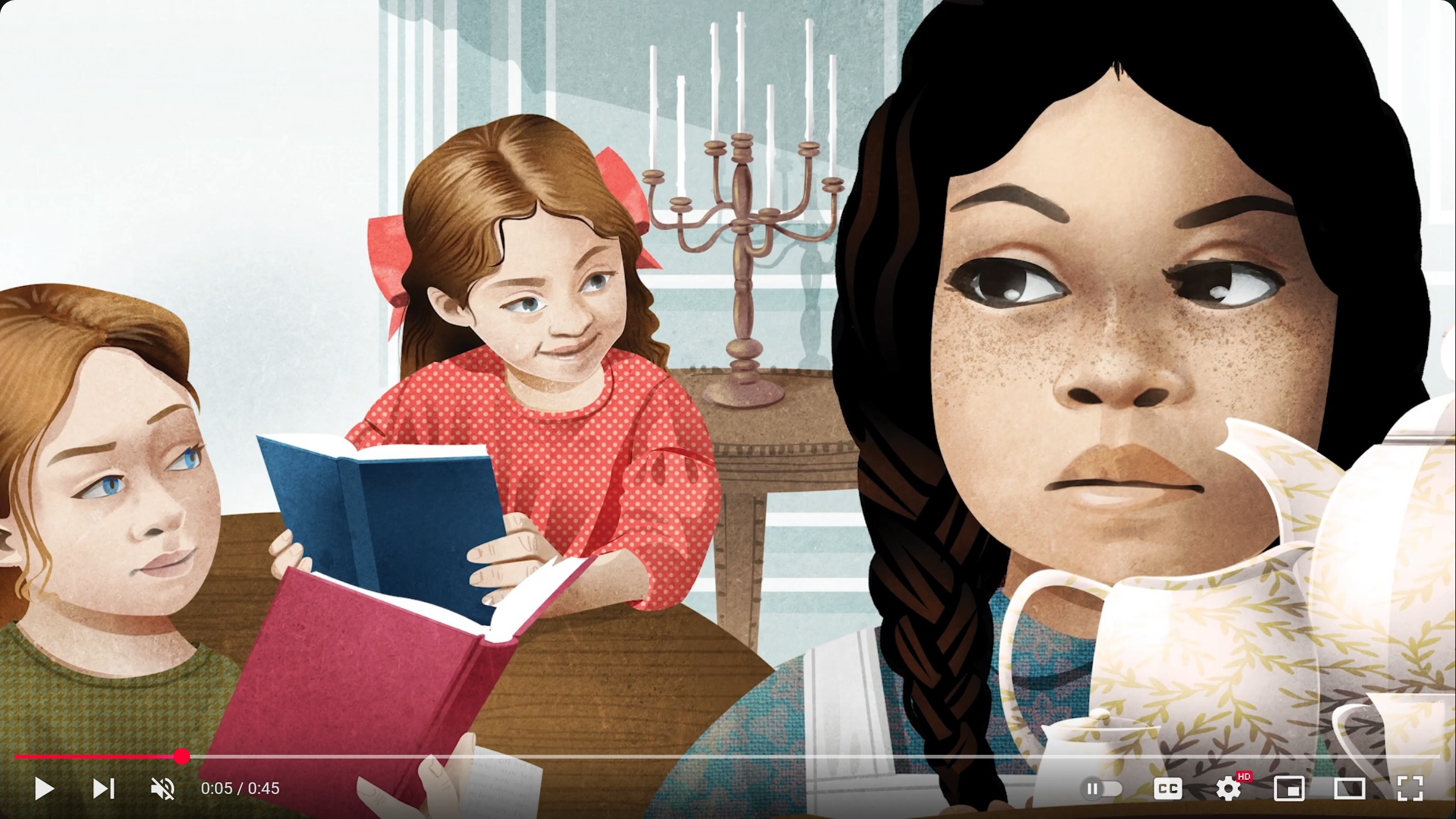 CeeCee: Underground Railroad Cinderella
CeeCee: Underground Railroad Cinderella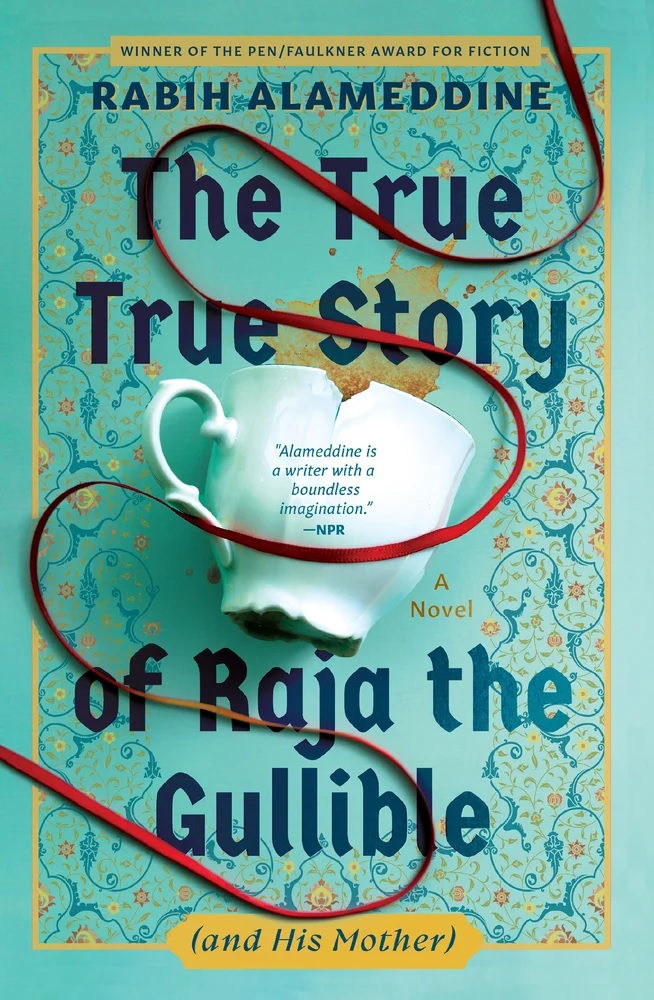 The True True Story of Raja the Gullible (and His Mother) is a novel as expansive, funny, and poignant as its title promises. With his signature wit and irreverence, Rabih Alameddine (
The True True Story of Raja the Gullible (and His Mother) is a novel as expansive, funny, and poignant as its title promises. With his signature wit and irreverence, Rabih Alameddine (